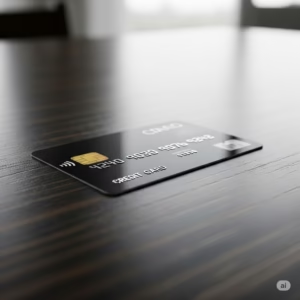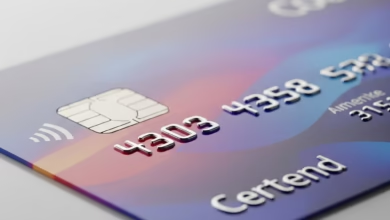10 common mistakes you make with your credit card
Know these mistakes you make with your credit card

Credit cards can be incredibly useful financial tools, offering convenience, rewards, and a way to build your credit history. However,1 misused, they can also lead to debt and financial stress. Understanding common pitfalls can help you navigate the world of credit cards more wisely. Here are 10 mistakes many people make – and how to avoid them.
Ignoring Your Credit Card Statement Every Month

One of the biggest mistakes is not checking your credit card statement regularly. This isn’t just about the balance due; it’s also about reviewing transactions for errors, unauthorized charges, or fraudulent activity. Get into the habit of reviewing your statement as soon as it arrives, whether it’s a physical mail or an email notification.
Only Paying the Minimum Amount Due on Your Credit Card
While paying the minimum keeps your account in good standing, it’s a slow and expensive way to repay debt. Interest charges accumulate on the remaining balance, significantly increasing the total cost of your purchases and extending your repayment period. Always aim to pay off your full balance if possible, or as much as you can afford above the minimum.
Missing Credit Card Payment Due Dates and Incurring Fees
Late payments are detrimental in multiple ways. Firstly, they often result in late fees, adding to your debt. Secondly, and more importantly, they negatively impact your credit score. Payment history is the most significant factor in your credit score, so even one late payment can have a lasting effect. Set up reminders or automatic payments to avoid missing deadlines.
Maxing Out Your Credit Cards (High Credit Utilization)

Using too much of your available credit, known as high credit utilization, can harm your credit score. Lenders and credit bureaus prefer to see you use a small percentage of your available credit (ideally below 30%). Maxing out your cards signals that you might be over-reliant on credit and struggling financially.
Applying for Too Many New Credit Cards Too Quickly
While new credit cards can offer benefits, applying for too many in a short period can be a red flag to lenders. Each application usually results in a “hard inquiry” on your credit report, which can temporarily lower your credit score. Only apply for new credit2 when you genuinely need it3 and have a plan to manage it responsibly.
Not Understanding Your Credit Card’s Interest Rate (APR)
Many people don’t fully grasp their card’s Annual Percentage Rate (APR). This is the cost of borrowing money on your credit card. If you carry a balance, a high APR can lead to significant interest charges. Always know your APR, especially if you anticipate carrying a balance, and look for cards with lower rates if needed.
Using Credit Cards for Emergencies Instead of an Emergency Fund

While credit cards can seem like a quick solution for unexpected expenses, relying on them for emergencies can quickly lead to high-interest debt. It’s always better to build a dedicated emergency fund with cash savings. Use your credit card for emergencies only as a last resort if you have no other options and can pay it back quickly.
Closing Old Credit Card Accounts Unnecessarily
You might think closing an unused credit card is a good idea, but it can sometimes hurt your credit score. Closing an old account reduces your total available credit and can shorten your average credit age, both of which can negatively impact your credit utilization and overall credit history length. It’s often better to keep old, paid-off accounts open, even if you don’t use them frequently.
Falling for Credit Card Scams and Phishing Attempts
Be vigilant about credit card scams. Phishing attempts (emails or messages pretending to be your bank) often try to trick you into revealing personal information. Always be suspicious of unsolicited requests for your card number, PIN, or security code. If in doubt, contact your credit card company directly using a number from their official website, not one provided in a suspicious message.
Not Reviewing Your Credit Report Annually for Errors

Your credit report contains a detailed history of your credit accounts, including your credit cards. Errors on your report can negatively affect your credit score. You are entitled to a free copy of your credit report from each of the three major credit bureaus annually.4 Reviewing it helps ensure accuracy and allows you to dispute any incorrect information.
By understanding and avoiding these common mistakes, you can use your credit cards more effectively, build a strong credit history, and avoid unnecessary debt, setting yourself up for greater financial stability.





